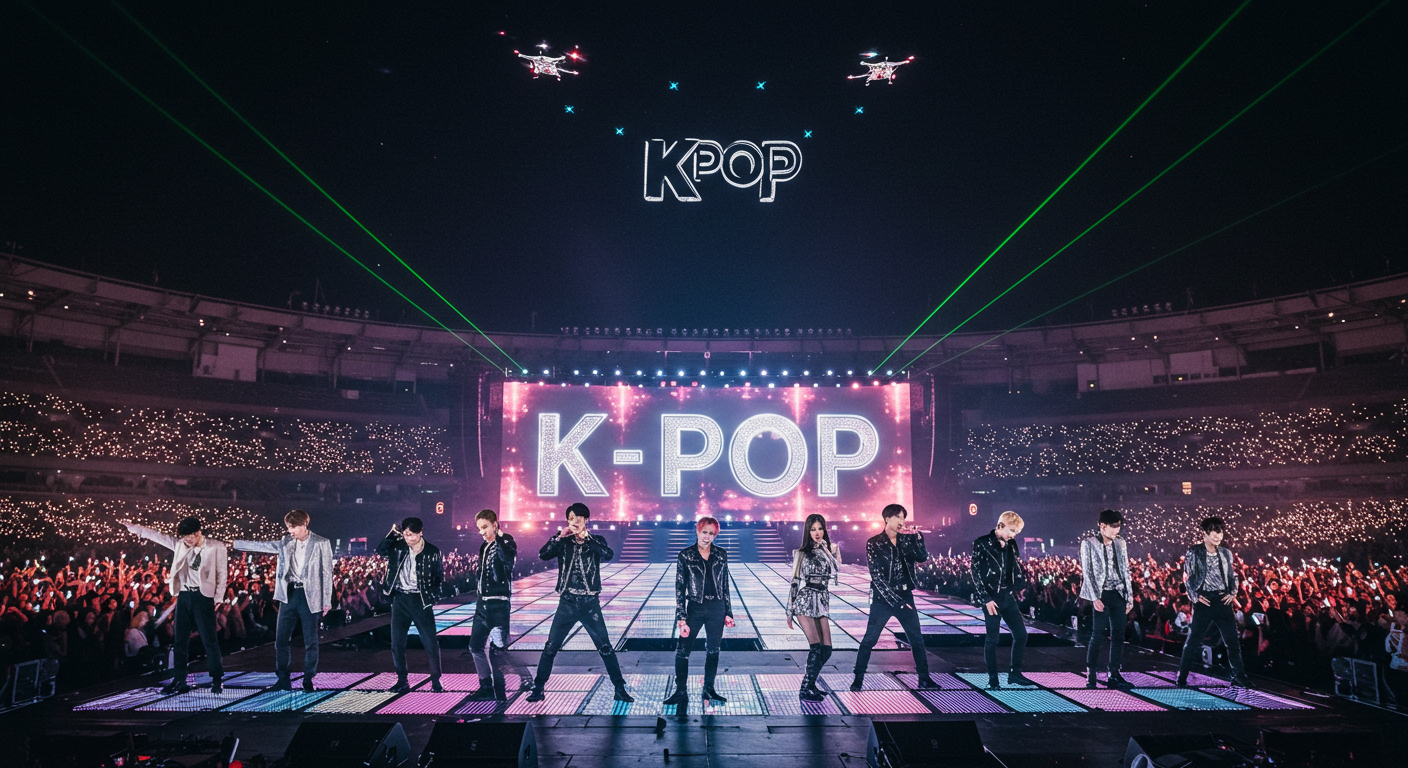The Evolution of K-pop: Beyond BTS and BLACKPINK
I still remember the first time I heard BTS’s “Spring Day” on a European radio station. It wasn’t just the fact that it was in Korean that surprised me—it was that everyone around me was singing along.
K-pop has become more than music—it’s now a cultural language connecting Korea and the world.
- BTS made history with Billboard #1 hits and a speech at the United Nations
- BLACKPINK rocked Coachella, led global fashion campaigns, and shattered YouTube records
- Groups like Stray Kids, NewJeans, and SEVENTEEN are now leading the next wave
I once attended a K-pop concert in Paris, and I’ll never forget seeing fans crying, laughing, and singing along—in Korean.
That’s when I realized: this isn’t just music. It’s something much deeper.

K-Dramas and Films: Dominating Global Screens
From Crash Landing on You to Extraordinary Attorney Woo, Korean dramas now top Netflix charts around the world.
When Parasite won the Academy Award for Best Picture, I cried with my Korean friends abroad.
It was the emotional realization that “our stories resonate globally.”
- Netflix and Disney+ have signed billion-dollar production deals with Korean studios
- Hits like The Glory, Sweet Home, and Moving prove Korea’s strength across multiple genres
- K-dramas are no longer defined by melodrama—they’re now respected for genre diversity and world-class quality

Korean Language Boom: Hangul Goes Global
As K-pop and K-dramas gain popularity, interest in the Korean language and Hangul has exploded.
- Korean is being added to official school curricula in the U.S., France, Thailand, and more
- TOPIK (Test of Proficiency in Korean) sees record-high applicants every year
- Words like “oppa,” “saranghae,” and “daebak” are now part of the global pop lexicon
At my local university, the “Korean Culture & Language” class fills up faster than any other.
People are fascinated not only by the language but also by the scientific structure and aesthetic beauty of Hangul.
K-Content Export: Fueling Korea’s Soft Power
Today, Korean content is one of the country’s strongest exports.
| Year | Export Value | Key Sectors |
|---|---|---|
| 2010 | $3.1 billion | Games, Music, Broadcasting |
| 2022 | $12.8 billion | Music, Dramas, Webtoons, Games |
New areas like webtoons, metaverse content, and virtual idols are growing rapidly.
I even heard recently that a Middle Eastern broadcaster is preparing to launch a K-drama-only channel—a sign that Korean content is going truly global.
In the Era of Cultural Influence, Korea’s Role
In the past, national power was defined by military and economic strength.
Today, it’s also defined by cultural power.
Korea is now seen globally as a country people want to visit, a language they want to learn, and a culture they want to experience.
- From K-pop and K-dramas
- To K-food, K-beauty, and K-fashion
- The entire K-lifestyle is captivating audiences around the world
Sometimes I’m warmly welcomed abroad just for being Korean.
In those moments, I realize—
“The content we create isn’t just entertainment—it’s a bridge to understanding each other.”

In Closing: How K-Culture Is Bridging the World
Korea is no longer a “small Asian country.”
It’s now a cultural powerhouse captivating screens and hearts across the globe.
“K-Culture tells Korean stories—and those stories are now resonating with the world.”
One song, one drama at a time—K-Culture is changing the world.
🔗 Watching Korea’s Story Together, One Series at a Time
